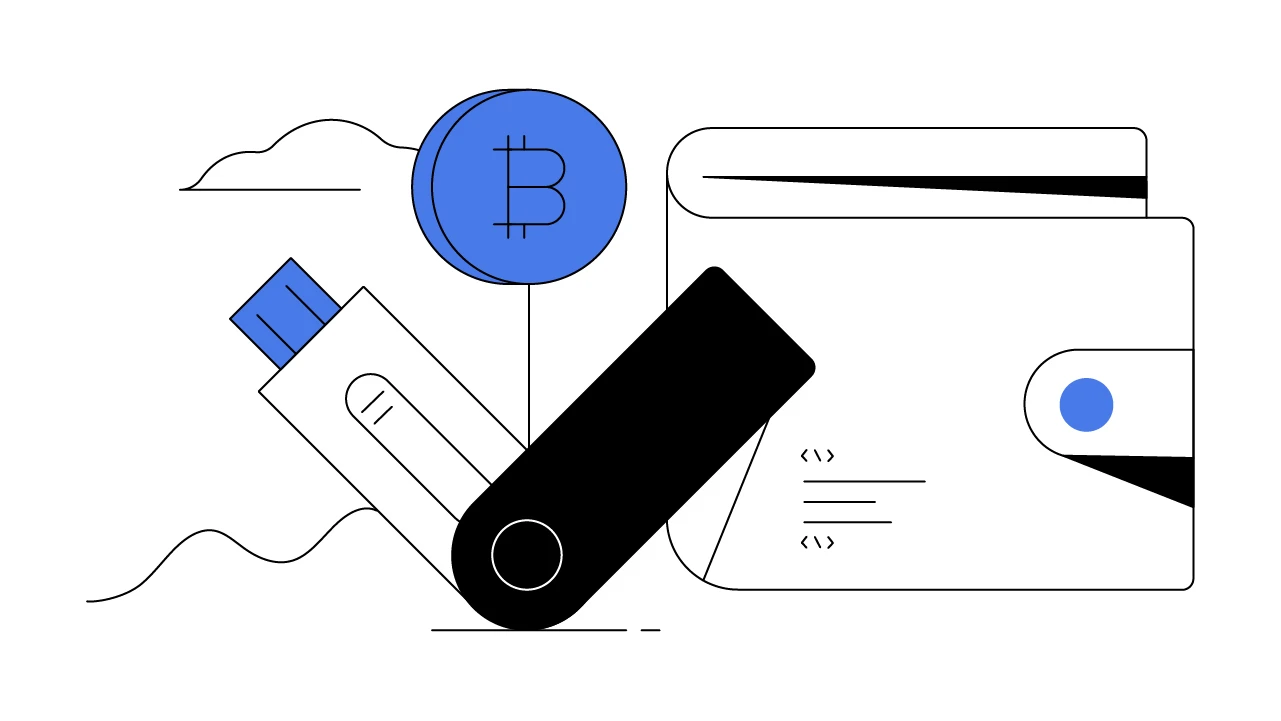Contents
Metamask: An ETH-First Crypto Wallet for Swaps and dApps
MetaMask is a free browser extension and mobile app that allows users to store and swap crypto, interact with Ethereum, and host dApps.
Updated December 21, 2021 • 3 min read

Summary
With its simplified user experience (UX) and approachable design, MetaMask has become a favored wallet tool for many users in the Ethereum ecosystem. As a wallet that provides storage, swaps, and access to decentralized apps (dApps), Metamask is a multifunctional, robust, and user-friendly portal to Web3.
What Is MetaMask?
MetaMask is a free web and mobile crypto wallet that allows users to store and swap cryptocurrencies, interact with the Ethereum blockchain ecosystem, and host a growing array of decentralized applications (dApps). It is one of the most widely used crypto applications in the world. Over ten million active monthly users logged into MetaMask in August of 2021.
In earlier versions, MetaMask was only available as a desktop browser plugin for Firefox and Chrome, but in September 2020, MetaMask Mobile was released for both Android- and iOS-powered devices. MetaMask quickly established itself as the standard bearer for self-managed, non-custodial crypto wallets — in part thanks to its user experience (UX) and frequent updates. It has played an essential role in raising the standards of usability in blockchain and crypto technology, laying the foundation for the explosive growth of sectors like decentralized finance (DeFi) and non-fungible tokens (NFTs) by simplifying and streamlining the Ethereum user experience into one simple wallet interface.
How Does MetaMask Work?
MetaMask has three primary uses: storage, swaps, and dApp access. Collectively, these functions encompass everything a normal crypto user would likely ever need to interact with Ethereum.
Crypto storage: MetaMask’s built-in crypto wallet can be used to store tokens that are built on Ethereum’s ERC-20 and ERC-721 token standards, and users can easily create and navigate between multiple wallet addresses within the app. The application’s advanced encryption technology allows users to securely store their wallet passwords and private keys within their own browser via a MetaMask extension, which gives them more control over both their public and private keys. Additionally, new users are provided with a set of seed phrases when they first create an account, which can be used to recover their account if necessary.
Token swaps: MetaMask has a trade function that lets you execute peer-to-peer (P2P) token swaps directly from your wallet. Instead of transacting through an order book, exchange, or decentralized exchange (DEX) liquidity model, these swaps aggregate data from multiple DEXs, DEX aggregators, and automated market makers (AMMs). MetaMask swaps allow users to trade crypto directly without having to interact with any other custodial or intermediary platform, thus reducing friction, limiting slippage, and lowering costs.
Access to dApps: MetaMask users can also use the wallet to directly access a wide range of Ethereum-based dApps, crypto lending products, Ethereum-powered games, NFTs, and more. Additionally, MetaMask’s built-in crypto wallet makes it easy for users to spend, send, or stake their crypto anywhere within the Ethereum ecosystem without having to manage external wallet integrations or unnecessary transactions. As a result, MetaMask directly provides users with an easy entry point into the world of DeFi and other blockchain-based sectors and services.
In 2020, MetaMask was updated to allow for integrations with Binance Smart Chain (BSC). This means users can now switch freely between their Ethereum and Binance crypto wallets, trade on DEXs from either network (albeit not simultaneously), and access dApps from both ecosystems. So while MetaMask was primarily focused on Ethereum development initially, the decision to expand access to other blockchain networks underscores its main goal of establishing an interoperable and interconnected Web3 ecosystem.
MetaMask’s Role in dApp Development
MetaMask’s open platform also plays a key role in promoting Ethereum-based dApp development for coders and technologists. For developers building a dApp, Metamask is pre-loaded with fast connections to Ethereum and several test networks via Infura. These built-in connections allow developers to begin building a new dApp on Ethereum without the need to set up and run a full network node. This can be helpful for bootstrapped entrepreneurs looking to build immediately, whether they are creating a simple browser-friendly user interface (UI) or a full-fledged, mainnet-ready dApp that will support an entirely new decentralized marketplace.
Additionally, since MetaMask extensions are compatible with popular browsers like Chrome, Firefox, and Safari, the application makes it easier for developers to create new applications that are designed to work within traditional browsers. Thus, MetaMask’s role in enabling dApp adoption is two-fold: It provides a portal for end users to access dApps, while also enabling developers to streamline their path to getting those applications to market.
Potential Risks to Using MetaMask
While MetaMask is undoubtedly one of the most feature-rich, user-friendly crypto applications available, there are a few key considerations worth noting:
MetaMask’s browser-based nature presents potential security risks: While the MetaMask extension itself does not have access to any of your personal information, the web browser you access it through might. And while your browser won’t have access to your private passphrases or other sensitive data, most browsers are designed to collect information about when and how you use any integrated app or plug-in. Additionally, since MetaMask stores private keys within the user’s browser, the theft of this data remains theoretically possible, if still unlikely.
MetaMask funds are stored in hot wallets: In order to make it as easy as possible for users to access, trade, and use their crypto, MetaMask stores all of its users’ assets in hot wallets, i.e. digital crypto wallets that are perpetually connected to the blockchain. While both MetaMask Mobile and the desktop MetaMask extensions have strong encryption features, hot wallets can never be as secure as cold wallets, and any information that is stored online long-term runs the risk of being stolen.
MetaMask relies on external nodes: Rather than running a full node of its own, MetaMask relies on external nodes that the application has no direct control over. While this has not resulted in any persistent issues to date, these nodes may occasionally experience downtime, which can temporarily disrupt or shut down the application.
MetaMask: A Glimpse at the Future
MetaMask provides a simple and flexible way to store crypto, swap tokens, and interact with dApps and decentralized services on the Ethereum blockchain. By expanding MetaMask’s range to incorporate Binance Smart Chain, the MetaMask team is moving beyond the boundaries of the Ethereum ecosystem in order to accelerate the growth of a wider decentralized internet.
Cryptopedia does not guarantee the reliability of the Site content and shall not be held liable for any errors, omissions, or inaccuracies. The opinions and views expressed in any Cryptopedia article are solely those of the author(s) and do not reflect the opinions of Gemini or its management. The information provided on the Site is for informational purposes only, and it does not constitute an endorsement of any of the products and services discussed or investment, financial, or trading advice. A qualified professional should be consulted prior to making financial decisions. Please visit our Cryptopedia Site Policy to learn more.

Is this article helpful?


